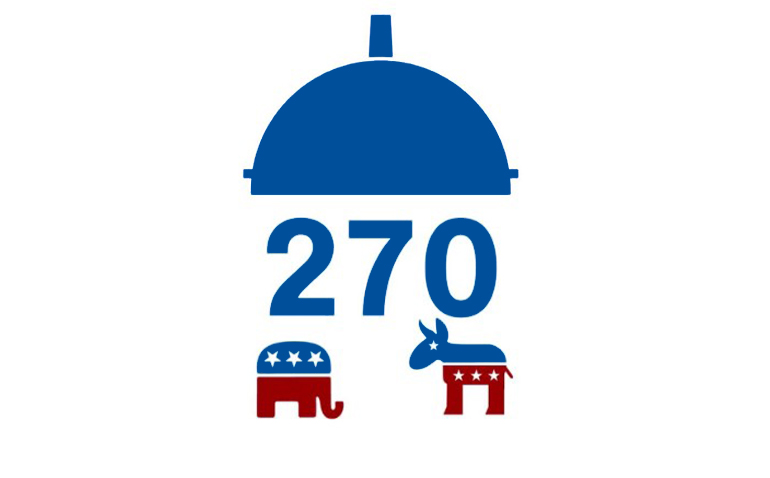
Electors and the Presidential Term
THE END and BEGINNING of PRESIDENTIAL TERMS
As prescribed in Amendments XII & XX to the U.S. Constitution, Donald Trump’s current term ends at noon on January 20, 2021 whether he wins or loses the 2020 vote of the Electors or whether the outcome is unclear. Should he win votes constituting a majority of the whole number of Electors appointed, he will be sworn in for a new Presidential term at noon on January 20, 2021. A majority of appointed Electors is 270 votes or more.
Should Joe Biden win votes constituting a majority of the whole number of Electors appointed by the States, he will be sworn in as President at noon January 20, 2021.
Article II, Section 1 of the U.S. Constitution grants States the right to appoint Electors (now referred to as the Electoral College) and State Legislatures the authority to direct how those appointments shall be made. [1] These appointed Electors of all the States meet on the first Monday after the second Wednesday of December (December 14, 2020) to vote for the President and Vice President. These Electoral votes are sent to the newly elected Congress which meets January 6th to Certify the votes and declare the results.
Given the current 2 party system, if neither the Republican nor Democratic Presidential candidate receives 270 Electoral votes, it is unlikely either parties’ Vice Presidential candidate will be able to achieve a majority and the Senate’s ability will be limited to declare a Vice Presidential winner to become a new acting President to serve until a formal Presidential winner can be determined.
“…the terms of Senators and Representatives (shall end) at noon on the 3rd day of January, of the years in which such terms would have ended if this article had not been ratified, and the terms of their successors shall then begin.” [2]
So, it’ll be the Congress elected November 2020 to receive the Electors’ votes of the States on January 6th and declare the winner should there be one. Should the Electors’ votes be in disarray and Congress is unable to declare a winner, there will be no qualified President or Vice President at noon on January 20, 2021.
And per the Presidential Succession Act of 1947, the Speaker of the newly elected House of Representatives will become the President. All rise for President Nancy Pelosi. [3]
Should a qualified President and Vice President not be determined by January 20, 2021 is highly unlikely. State Governors, Congress and the Courts can resolve most Electors’ issues.
But just saying — messing with the election could have unintended consequences.
[1] Only 6 of the original 13 States used the popular vote to select Electors and only by 1840 were essentially all states selecting Electors by popular vote. Today, all states use the popular vote but us several different methods for determining the relation between popular votes and how Electors’ votes are cast.
[2] Amendment XX to the U.S. Constitution, Section 2. The Congress shall assemble at least once in every year, and such meeting shall begin at noon on the 3rd day of January, unless they shall by law appoint a different day.
[3] Presidential Succession Act 1947: Be it enacted by the Senate and House of representatives of the United States of America in Congress assembled, That
-
(1) if, by reason of death, resignation, removal from office, inability, or failure to qualify, there is neither a President nor Vice President to discharge the powers and duties of the Office of President, then the Speaker of the House of Representatives shall, upon his resignation as Speaker and as representative in Congress, act as President.
To sign up for updates from BPF, subscribe here.
